88 F. high yesterday in the cities.
84 F. average high for July 10. Source:
NOAA.
92 F. high temperature on July 10, 2011.
511 cooling degree days since January 1. Average as
of July 10 is 288. That means we've spent roughly 77% more than average
cooling our homes and businesses so far in 2012. Source: local NWS
office.
56% of America impacted by drought, a new record for the Drought Monitor. Details below.
20X. "
In fact, the statistics suggest (the
Texas/Oklahoma drought/heatwave of 2011) was 20 times more likely to
occur because of the current conditions we have with the increasing
temperatures related to increasing greenhouse gases." - NCDC Chief Thomas Karl in a PBS Newshour interview Tuesday - details below.
$2 billion in severe storm losses in June across the USA. Source:
Insurance Journal/Aon Benfield.
1 In 1,594,323. "
For 13 consecutive months,
temperatures ranked among the warmest third of their historical
distribution for the first time on record. As NOAA points out, "The
odds of this occurring randomly is 1 in 1,594,323." - from a Huffington Post article about the scope and intensity of summer heat; details below. Photo: Steve Burns.
Most Extreme Of The Extremes. "
According to the report,
the extremes in the first half of 2012 were the most extreme of the
extremes: The U.S. Climate Extremes Index (USCEI), an index that tracks
the highest and lowest 10 percent of extremes in temperature,
precipitation, drought and tropical cyclones across the contiguous
U.S., was a record-large 44 percent during the January-June period,
over twice the average value." - from Mother Jones; full article below.
A Conservative Speaks Out On Climate Change. “
Conservatives
have the answer to our energy and climate challenge,” he said in a
statement. “It’s about correcting market distortions and setting the
economics right. We need to stop retreating in denial and start
stepping forward in the competition of ideas.” - excerpt from former South Carolina GOP Rep. Bob Inglis in an article at The Hill; details below.
Heading Into Another El Nino? From Climate Central: "
El
Niño events can also help boost global average surface temperatures. A
strong El Niño event led to the record warm year of 1998, and some
climate scientists, including NASA’s James Hansen, have pointed out that
a new El Niño event would likely lead to another record warm year
given the combination of El Niño and manmade global warming." Details below.
Dog Days Of July (But Not Record Territory). The
ECMWF (European) model suggests highs near 90, fairly consistently,
through the end of next week, possibly low to mid 90s early next week.
The best chance of T-storms: Friday, again Monday of next week.
Is Minnesota Really Becoming More Humid? The short answer is yes, although it's not a radical increase; roughly .66F per century. More details from
The Minnesota Climatology Working Group: "
The
graph (above) shows some interesting results. The first of which is the
minima beginning in 1924 and lasting until 1937. This stretch of lower
dew points matches well with the dust bowl era when precipitation was
also at a minimum. The period 1938 to 1945 corresponds with a period of
higher precipitation that immediately followed the dust bowl. Note the
similarity with the 1990's. The high dew point period of the 1990’s to
the early 2000’s also reflects an era of higher precipitation. What
does stand out is the lack of dry dew point years from 1993 to 2002.
Both 2003 and 2004 were somewhat drier in the Twin Cities and the dew
point values reflect that accordingly. 2005 saw a return to average
summer dew point temperatures that were above the long term mean. 2006
through 2009 fell below the long term mean. In fact, 2009 had the lowest
1800 hour summertime average for the 107 year record with 52.3
degrees. 2010 saw the ninth highest 1800 hour summertime average since
1902."
Warmest Half Year On Record For U.S. Mainland, NOAA "State Of The Climate" Reports. Details from
Huffington Post: "
Yes,
it really is getting hot out there. A new report finds that the past
12 months have been the warmest on record for the mainland United
States. According to the NOAA National Climatic Data Center's "State of the Climate: National Overview for June 2012" report released Monday, the 12-month period from July 2011 to June 2012
was the warmest on record (since recordkeeping began in 1895) for the
contiguous United States, with a nationally-averaged temperature of
56.0 degrees, 3.2 degrees higher than the long-term average. According
to the report, every single state in the contiguous U.S. except for
Washington saw warmer-than-average temperatures during this time
period. The period from January to June of this year also has been the warmest first half of a year on record for the U.S. mainland."
"
Every weather event that happens now takes place in the context
of a changing global environment," Deputy NOAA Administrator Kathryn
Sullivan said in a statement." - from a Christian Science Monitor article below.
Extreme Weather Records "Like A Baseball Player On Steroids". Yesterday Judy Woodruff, on the
PBS Newshour
(a great source of actual news) interviewed Thomas Karl, the chief of
NOAA's NCDC. The link has the complete interview; here is a brief
transcript of some of Karl's comments: "
What we're seeing today is
equivalent or even greater than the temperature records that fell in
the 1930s. And what we're seeing more frequently is record-breaking
high temperatures....And it's clear every extreme weather and climate
event cannot be attributed to human activity or greenhouse gases. But
there's an increasing number of these where they can. And one specific
example was the heat wave and drought in Texas and Oklahoma last year.
The analysis that just completed suggested that that event would have
occurred normally with the kind of La Nina conditions that occurred
last year, but the severity of it made it much more likely. In
fact, the statistics suggest it was 20 times more likely to occur
because of the current conditions we have with the increasing
temperatures related to increasing greenhouse gases."
Global Warming Makes Heat Waves More Likely, Study Finds. More on the recent studies from Justin Gillis at
The New York Times: "....
This is hot new science,” said Philip W. Mote,
director of the Climate Change Research Institute at Oregon State
University, who led the research on the Texas heat wave and drought.
“It’s controversial. People are trying different methods of figuring out
how much the odds may have shifted because of what we have put into
the atmosphere.” The general conclusion of the new research is that
many of the extremes being witnessed worldwide are consistent with what
scientists expect on a warming planet. Heat waves, in particular, are
probably being worsened by global warming, the scientists said. They
also cited an intensification of the water cycle, reflected in an
increase in both droughts and heavy downpours."
Record Percentage of USA Affected By Drought. WJLA-TV in Washington D.C. has more details: "
High temperatures, searing heat and a nationwide lack of rain has not only left the majority of the United States parched, but it's dry at record levels, according to a new report.
The latest release from the U.S. Drought Monitor, a joint research
study by the USDA, Department of Commerce, NOAA and the National
Drought Mitigation Center, shows that just under 56 percent of the
lower 48 states is being affected by drought conditions. The percentage
is an all-time high for the study, according to The Weather Channel."
* for the latest NOAA Drought Monitor for the USA click
here.
Huntington, Utah "Seeley Blaze". The heat and growing drought is creating ripe conditions for more wildfires; details on this wildfire from the
NWS: "
One
of our forecasters is training to become an Incident Meteorologist or
“IMET.” He is providing on site weather support at the Seeley Fire in
Central Utah, 15 miles Northwest of Huntington, UT. The Seeley Fire
began on the Manti-LaSal National Forest with a lightning strike on June
26. Fire activity has recently been slowed by a widespread wetting
rain which dropped 0.15 to 0.3 inches. The fire is now 76% contained
and covers an area of 47,578 acres."
10" Rains Near Austin, Texas. The latest from
chron.com: "...
Many houses had to be evacuated in Webberville, which is in Bastrop County, the Austin American-Statesman
reported. The typically dry, drought-affected land in Central Texas
may see more flash flooding Tuesday, as the cluster of storms continue
to pour down this afternoon, National Weather Service says. The service
released a flash flood warning for the Austin and San Antonio areas
until noon Tuesday. The areas affecting by the warning is northwestern
Bastrop County and East Central Travis County in mainly rural areas.
Nearly two inches of rain has fallen in the past hour in the area near
Webberville and nearly another inch is expected."
June's Severe Weather Losses Near $2 Billion In U.S.: Aon Benfield. The story from
Insurance Journal: "
U.S.
severe weather insurance losses were close to $2 billion in June,
according to Aon Benfield’s Global Catastrophe Report. Published by
Aon’s Impact Forecasting, the report analyzes the natural disaster
events that occurred across the United States and worldwide during
June. The most costly was the severe weather event that spawned up to
baseball-sized hail in parts of Texas and New Mexico. According to the
Insurance Council of Texas, insured losses in the state will exceed $1
billion, with more than 100,000 claims filed by the end of June. A
separate hail storm in Colorado and Wyoming caused more than $700
million in insured losses, according to local sources."
Flash Flood. Check out the flooding Rocky Branch Creek on Main Street in downtown Columbia, South Carolina; details via
Facebook: "
Picture
from the intersection of Whaley and Main Streets showing flooding from
Rocky Branch Creek at 7:40 pm. Photo courtesy of SC Water Science
Center and USGS."
The Summer Of All Or Nothing. While corn withers in
fields from Indiana to Iowa, and brushfires continue to engulf much of
the west, copious rains are predicted for the Middle Mississippi Valley,
some 6"+ rainfall amounts predicted over the next 5 dayys near Memphis
and Nashville. Map above: NOAA HPC.
How The Heat Affects Our Moods. Here's an excerpt of an interesting story from the
California Examiner: "...
Among
some of the findings was that heat waves are related to more violent
behavior and aggression (it’s irritating to be so hot), higher drug and
alcohol abuse (people use to try to relax), depressed moods tend to
increase. When humidity accompanies the heat—which in Lake Elsinore is
unusual—people tend to get sluggish and sleepy. Another aspect of
high temperatures is that it can cause dehydration. Some older people
who suffer from high blood pressure, for example, use diuretics (makes
you urinate) to decrease the amount of fluid in the blood system that
causes pressure on the cells. They will, then, get dehydrated quicker
from the heat as their body is also excreting sweat through the pores
of the skin to keep them cool. Of course, we all need to drink extra
fluids. The best fluid to drink is water. The body is mostly water
and that is the basis of all of our bodily fluids. Water will also act
as a lubricant and make it easier to move."
El Nino May Be On The Way, Altering Weather Conditions.
Just when you thought it was (almost) safe to go outside. We may be
going from a cool phase in the Pacific (La Nina) to a warm phase (El
Nino). Not sure it makes any difference these days, because even the
cool phases have seen record warmth downwind, over North America.
Details from meteorologists Andrew Freedman at
Climate Central: "
If
you thought the first six months of the year were chock full of weird
weather events, just wait — according to climate scientists there is an
increasing likelihood that El Niño conditions
will soon develop in the tropical Pacific Ocean. El Niño events, which
are characterized by an area of unusually warm sea surface
temperatures in the tropical Pacific Ocean, can have a huge influence
on global weather patterns. Its effects on the U.S. tend to peak during
the winter. The U.S. has already had a record warm January-to-June
period, and has already had two extremely rare heat waves this year,
one in March and the other in mid-June to early July. Entering
mid-summer, drought conditions are covering 56 percent of the lower 48
states, a record drought extent in the 21st century." Image: NOAA.
El Nino May Form By September, Possibly Curbing Atlantic Storms. Details from
Bloomberg; here's an excerpt: "
An El Nino may be about to form in the equatorial Pacific Ocean,
which may create a curb on hurricanes in the Atlantic as the storm
season reaches its most active phase. The number of warm spots across
the central Pacific has grown, leading climatologists to believe an El
Nino may form between now and September, according to the U.S. Climate Prediction Center in Camp Springs,
Maryland. “Overall, the forecaster consensus reflects increased chances
for El Nino,” the center said a statement today. An El Nino watch
posted last month was continued." Image: NOAA.
Once-Derided Climate Satellite May Launch With New Goal. The story from The Orlando Sentinel and
The Boston Herald; here's a clip: "
An
Earth observation satellite conceived by former Vice President Al Gore
— but banished to a Maryland warehouse by foes of climate change after
George W. Bush beat Gore for the presidency — could get a ride into
space as early as 2014. The National Oceanic and Atmospheric
Administration wants about $23 million next year to continue a quiet
reboot of the satellite, and spending bills circulating in Congress
show that lawmakers — so far — are willing go along with it. But given
the satellite’s history, supporters won’t breathe easy until the Deep
Space Climate Observatory rises from a launchpad."
ESA Launches MSG-3 Satellite; Europe To Get Better Weather Coverage.
Will Europe leapfrog NOAA and NASA with these new low-orbit tools to
monitor weather and climate? Stay tuned. Here's an excerpt from
International Business Times: "
The
latest weather satellite in Europe's highly successful Meteosat
second-generation series is on its way after lifting off on an Ariane 5
rocket. The satellite was launched on 5 July from Europe's Spaceport at
the Guiana Space Centre in Kourou, French Guiana. According to the
European Space Agency (ESA), the satellite's sensors will ensure that
Europe and Africa continue to receive up-to-date weather coverage." Photo credit
here.
Study: Weather Might Impact Tone Of Olympics Coverage.
London's weather has been downright lousy in recent weeks, rainy, windy
and cool. Foul. Will it improve in time for the Big Games? Stay tuned.
In the meantime here's an excerpt of an article from
phys.org: "
Using coverage of the 2008 Summer Olympics in Beijing as a basis, the researchers examined how air pollution and weather -- by producing cloudy conditions
as opposed to sunlight -- might have impacted coverage of those Games.
They examined four major U.S. newspapers and found that as air
pollution increased and temperatures rose, journalists were more likely
to use negative words in stories about the host country and about
competitors from China and the United States when reporting. Because
London is know for its cloudiness and rain, researchers think the tone
of coverage of the 2012 Olympic Games in London could be impacted if
grey and misty conditions exit. If so, reporters might focus more on
what is wrong with the Games. But if the weather is ideal, reporters
are more likely to give the Olympics a higher grade, if the research
from Beijing holds true."
A Ragged Sky. Here's a wild photo, courtesy of Granger Smith, taken in Round Rock, Texas.
Pitt Researchers Link Heat And Increased Stroke Risk. Here's an interesting story from the
Pittsburgh Post Gazette: "
When
temperatures approach or exceed 90 degrees, health officials warn
people to stay inside and keep cool, and if that's not possible, drink
plenty of fluids, use sunscreen, wear light clothing and avoid
exertion. But a University of Pittsburgh Graduate School of Public
Health study has found a 12 percent increase in hospitalizations for
stroke when temperatures reach 87 degrees or higher. These are
cerebrovascular strokes, not heat strokes. Such strokes, often known as
"brain attacks," are caused by blood clots in the brain that can cause
paralysis and death."
Hurricane Stress May Put Newborns At Risk. This one
made me do a double-take. It's one of the few things we don't have to
worry about in Minnesota, but many of us have friends and family living
in Hurricane Alley. Here's an excerpt from
futurity.org: "
A
new study that offers insights into the effects of stress on pregnancy
used birth records from Texas and meteorological information to
identify children born in the state between 1996 and 2008 whose mothers
were in the path of a major tropical storm or hurricane during
pregnancy. The children’s health at birth was compared with that of
siblings whose gestation didn’t coincide with a major weather event.
Mothers living within 30 kilometers of a hurricane’s path during their
third trimester were 60 percent more likely to have a newborn with
abnormal conditions, which are detailed on birth records."
Weird Weather Turns Us Into Irrational Shoppers. Who
knew? Maybe that's why I have a compulsive urge to troll Amazon for
crap I don't need. When the going gets tough, do your civic duty and
SHOP! Details from
The Washington Post: "
Psychologists have long been aware of a curious phenomenon known as “projection bias.” We tend to think the future will resemble the present more closely than it actually does. So, for example, studies have found
that shoppers who buy groceries for the week on an empty stomach tend
to buy far more food (and more junk food) than they end up needing.
When you’re hungry, you expect you’ll always want a lot of food. But it
turns out that projection bias can be surprisingly pervasive and
affects even massive purchases like cars and homes. A new NBER paper (pdf) finds that abnormal weather can dramatically shape our buying habits." (AP Photo/Elise Amendola).
"Ask Paul". Weather-related Q&A:
Paul,
"I've been an avid reader of your blog for
years, and as a fellow Christian concerned with the environment, I have
been trying to tell everyone I know about your fact-based balanced
perspective on this critical topic. Here's my question: Is there any
published data on the relative contributions of the major sources of
carbon in the atmosphere?
For example, some geologists have suggested
that a single volcanic event like Pinatubo had a bigger impact on the
climate that all the cars in the US for a decade. That raised the
question in my mind: What is the relative impact of forest fires,
factories in the developing world, etc. compared to the coal-fired
electricity saved from switching to mercury vapor bulbs. I recognize it
will take a thousand small changes to create the sum change in the path
the climate we are on, but I wonder if the proportion of rhetoric for
certain actions matches the impact those changes would have. Is there a
way to weigh the impact more pragmatically?
Thanks and keep up the fight!"
Christopher Manrodt
Thanks Christopher - your question is a good one, and it comes up frequently. I asked
climate scientist Peter Sinclair for an answer and he directed me to a post from
USGS, the U.S. Geological Survey. Here's an excerpt:
"Do the Earth's volcanoes emit more CO2 than human activities?
Research findings indicate that the answer to this frequently asked
question is a clear and unequivocal "No". Human activities, responsible
for a projected 35 billion metric tons (gigatons) of CO2 emissions in
2010 (Friedlingstein et all, 2010) release an amount of CO2 that dwarfs
the annual CO2 emissions of all the world's degassing subaerial and
submarine volcanoes (Gerlach, 2011)." The preferred global estimates of
the authors of these studies range from about 0.15 to 0.26 gigaton per
year.
The 35-gigaton projected anthropogenic CO2 emission for
2010 is about 80 to 270 times larger than the respective maximum and
minimum annual global volcanic CO2 emission estimates. It is
135 times larger than the highest preferred global volcanic CO2 estimate
of 0.26 gigaton per year (Marty and Tolstikhin, 1998)."
University of St. Thomas climate scientist John Abraham adds: "A
tropical volcano like Pinatubo can cause significant short-term cooling
(2-3 years) that will dwarf the impact of emissions during that
time....the real impact of volcanoes is not through CO2 emissions. It is
through aerosol-particulates. As a rough estimate, each year, all
volcanoes worldwide are about equivalent to the CO2 emissions of
Florida."
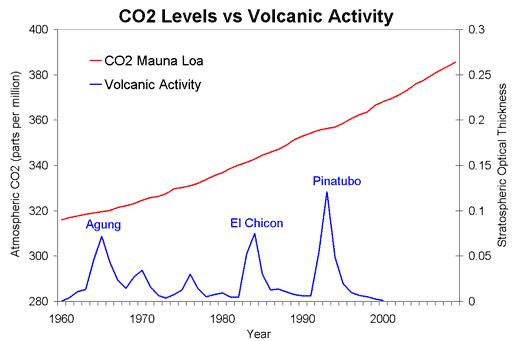 From climate scientist John Cook
From climate scientist John Cook:
"A picture is worth more than
1,000 words. Visually, the largest eruptions over the last half century
have had no discernible impact on CO2 levels (in fact, they've slightly
decreased the rate of CO2 increase because of the immediate cooling
effect."
Graph above (and more data) from
Skeptical Science.
Link Of The Day: Free Lightning Data.
Vaisala has put free cloud to ground lightning strikes online, their "Lightning Explorer Product", but there's a caveat:
the data is delayed by 20 minutes.
If you want closer to real-time data you'll need to write a check or
whip out your credit card. The white strikes are the most recent, the
blue strikes closer to 2 hours old - but you can get a rough idea of how
T-storms are moving over time.
The Aurora Gives Off A Snap, Crackle And Pop That Sounds Like "Clapping Hands".
Have you experienced this? I can't say I have - I've witnessed the
Northern Lights maybe 2-3 times in my life, each time an extraordinary
moment. Here's the video (and audio), courtesy of
Slate: "
When
nature really puts on a show, it also gives itself a much-deserved
hand. For years, folktales and first-person accounts from the aurora
borealis have claimed the dazzling Northern Lights also produce strange noises.
And now scientists have found those noises—which are apparently
similar to the sound of clapping hands—230 feet above the ground."
Monsoon Clouds Building. Thanks to Renee Schneider, who snapped this photo out in Payson, Arizona. Nicely done.
TV News Fails Acid Test. An excerpt from an article at
Variety: "
The
indignant email from Media Matters for America momentarily sounded
like it must have come from the Onion: "Study: Kardashians Get 40 Times
More News Coverage Than Ocean Acidification." To which anyone who has
paid attention to broadcast news over the past 30 years or so must
surely reply, "Well, duh." Television has always excelled at creating
personalities and at telling intimate stories. Yet over a generation
defined by such signature figures as Oprah Winfrey's talkshow and
Ronald Reagan's "Great Communicator" label, the medium has all but lost
its ability to grapple with big ideas and concepts, becoming wholly
reliant on anecdotes meant to engage viewers emotionally, not
intellectually."
Who Reported It First? Who Cares? Amy Sullivan has in insightful article at
The New Republic; here is an excerpt: "
Can
we talk about the nonsense of caring about which news outlet first
reports a big piece of news? I’m not talking about a genuine scoop—a
report that wouldn’t have otherwise come to light—but about news that
we’re all eventually going to find out anyway. Who Mitt Romney selects
to be his running-mate, for instance, or whether the Supreme Court
upheld the individual mandate. I know I’m often out-of-the-loop when it
comes to journalism norms and conventions, but this one honestly
confounds me. Has any publication ever received a Pulitzer for being
the first to report a major announcement? Is there some secret reward
at stake—free cookies for a year? A trip to Hawaii? Do colleagues buy
you a drink to congratulate you on beating the other networks by ten
seconds?"
If You Could - Would You Want To Live Forever? Christians
like me believe in life after death, eternal life (with God in a new
and perfect world). But biologists and futurists argue that, with
exponential growth of computer power, we may soon, within 10-20 years -
be able to live indefinitely. I know - it sounds like bad science
fiction. So was going to the moon back in the 1940s. In an attempt to
keep an open mind, here's a video and excerpt from Paul Solman on
The PBS Newshour and his interview with futurist Ray Kurzweil: "
Author,
inventor and futurist Ray Kurzweil has been a key voice in our
occasional series on the future of technology. The latest installment
on the advent of immortality debuted here on Making Sen$e July 9. As with economist Paul Krugman,
our extended interview with Kurzweil included many fascinating bits
that didn't make the final cut. So we continue Tuesday with one of them
-- a closer look at what Kurzweil has dubbed "the singularity": the
melding of man and machine to the point where one can't tell one from
the other. But in the spirit of your-guess-is-as-good as-mine (if not
Kurzweil's), mind telling us what you think? Will we one day
be backing up our memories the same way we save photos to the cloud?
Will technology augment our vision, our movement, our thinking from
here to eternity? If decrepitude becomes obsolete, would YOU like to
live forever?"
"Elqui Domos": A Hotel For Star-Gazers. I thought this was pretty cool -
gizmag.com has more details: "
Located
in the Elqui Valley in Chile’s Norte Chico region, Elqui Domos is one
of the few astronomical hotels in the world. The area is renowned for
its sparkling clear skies and Elqui Domos takes advantage of this by
offering lodgings in a series of geodesic domes with elevated loft beds
and open rooftops as well as recently added wooden cabins designed
with star-gazing in mind."
"Hey, What Does A Guy Have To Do To Get A Drink Around Here?" Love this pic taken out at Grand Canyon National Park; details via
Facebook: "
Sasha Jevtich Laura
and I were just starting a full moon hike on the South Kaibab trail.
We were just gearing up at dusk when a large herd of elk approached the
water station at the trail head. I was astounded to see that the
largest elk knew how to depress the faucet with her snout! The others
drank from the drain or the ground. Next time you are at the park and
you want to fill up your water bottle from one of our water stations,
you might want to consider wiping down the faucet before you fill up.
You never know who the last person or ungulate was to use it. Thanks to
ranger Sasha for the great photo!"
Celebrate The Heat Wave Breaking With Two Rambunctious Baby Polar Bears. O.K. This is one of the cutest things I've seen on the web in a long time - check out the video, courtesy of
Death and Taxes: "
After
11 days of insane, life-ruining, worse-than-Bikram temperatures, the
heatwave covering the Northeast and Midwest finally broke yesterday, a
low pressure system bringing relief to some areas, and nasty storms and
power outages to others. To celebrate being able to breathe outdoors,
here’s a video of two rambunctious polar bear cubs wrestling baby trees
by nature photographer Thomas D. Mangelsen. Don’t close it when you
think you get the gist—the cutest stuff happens in the third minute."
Comfortably Warm. Dew points dropped into the mid
40s yesterday, making highs in the upper 80s almost tolerable. Highs
were unusually uniform statewide, ranging from 87 at Alexandria to 88
St. Cloud and the Twin Cities, a toasty 89 at Redwood Falls.
Paul's Conservation Minnesota Outlook for the Twin Cities and all of Minnesota:
TODAY: Warm sun, still pleasant. Dew point: 59. Winds: South 10. High: 89
WEDNESDAY NIGHT: Mostly clear and mild. Low: 68
THURSDAY: Sunny, almost hot. Dew point: 69. High: 91
FRIDAY: Sticky and hot; a few T-storms (best chance central and northern MN). Dew point: 65. Low: 70. High: 93
SATURDAY: Hazy sun, humid with an isolated T-storm. Dew point: 68. Low: 71. High: 90
SUNDAY: Hot sun, still muggy. Dew point: 70. Low: 72. High: 92
MONDAY: Stinking hot again. Murky sun. Dew point: 72. Low: 73. High: 94
TUESDAY: Few T-storms, a bit cooler. Low: 72. High: 90
Hot Flash
NOAA reports 10 of the 12 hottest years since
1895, worldwide, have occurred since 2000. "For 13 consecutive months,
temperatures ranked among the warmest third of their historical
distribution for the first time on record. The odds of this occurring
randomly is 1 in 1,594,323" NOAA NCDC reported (note: this number is in
dispute among some of the climate scientists I know and trust - I'll
post a retraction if this is proven to be incorrect)
What is not in dispute: the last 6 months, and
the last12 months were the warmest on record for the USA, in spite of La
Nina, a cool phase in the Pacific. Freakishly odd. And now there's a
good chance we're sliding into an El Nino warming phase, which
correlates with milder winters for Minnesota and northern tier states.
Let's just ignore winter for now, and focus on a warm, quiet week.
No heat warnings or beachball-size hail, just a
whiff of drier, Canadian air keeping dew points tolerable. Time to
exhale and enjoy some of the best weather of summer with comfortable dew
points spilling over into Wednesday.
56 percent of America is in drought; the corn
crop over the Midwest and Ohio Valley is in trouble. Soil moisture
across most of Minnesota is in pretty good shape. Portions of the Red
River are in moderate drought, but conditions have improved dramatically
over central and southern Minnesota. Fingers crossed for farmers.
Dry weather prevails, only a small chance of
thunder Friday. Highs approach 90; mid 90s quite possible early next
week. Something to look forward to. No 100s in sight. That's progress!
"Thank God men cannot fly, and lay waste the sky as well as the earth." - Henry David Thoreau
Climate Stories...
Does Climate Change Increase The Odds Of Extreme Weather Events? Picking up on the breaking climate news, more detail from The Christian Science Monitor: "...
Heat-trapping
greenhouse gas concentrations - carbon dioxide, methane and nitrous
oxide among others - continued to rise last year, and the global
average atmospheric concentration for carbon dioxide went over 390
parts per million for the first time, an increase of 2.1 ppm in 2010.
"Every weather event that happens now takes place in the context of a
changing global environment," Deputy NOAA Administrator Kathryn
Sullivan said in a statement. "This annual report provides scientists
and citizens alike with an analysis of what has happened so we can all
prepare for what is to come." Beyond measuring what happened in 2011,
the international team of scientists aimed to start answering a
question weather-watchers have been asking for years: can climate
change be shown to be responsible for specific weather events?"
Photo credit above: "
In this file photo, Texas State Park
police officer Thomas Bigham walks across the cracked lake bed of O.C.
Fisher Lake in San Angelo, Texas. The year 2011 brought a record heat
wave to Texas and an unusually warm November in England." AP Photo/Tony Gutierrez
Record Heat, Derecho Storm: Climate Change? Indystar.com has the story - here's an excerpt: "
So
what's up with the U.S. weather this year, a warm winter, early
droughts and a multistate "derecho" windstorm before July. Is global
warming cooking our goose with extreme weather events, or not? It's
complicated, but some climate scientists argue that stifling heat
waves, drought and even June's derecho all come out of the global
warming playbook. At the same time, they caution against pointing to a
warming climate as the direct cause of any one bit of wild weather this
year, even as much of the nation sweated out a record-breaking heat
wave through the start of July, one which finally broke on Sunday." (Enhanced IR image of June 29 super-derecho courtesy of
WJLA-TV).
Crazy Climate Just Got More Extreme. Here's a snippet from an article at
Mother Jones: "
NOAA's latest National Climatic Data Center (NCDC) State of the Climate report
is out, and it's pretty impressive in the trends and records
department. More on the report below. But, first, I can't help but think
of it in light of an interesting new paper
in Nature Climate Change today. Researchers studying tree-ring data
from dead trees preserved in lakes in Finnish Lapland found a much
longer-term cooling trend over the past 2,000 years than previously
understood. This trend involves a cooling of -0.3°C per millennium due
to a gradual increase in the distance between Earth and the sun."
"This figure we calculated may not seem particularly
significant," says lead author Jan Esper, "however, it is also not
negligible when compared to global warming, which up to now has been
less than 1°C. Our results suggest that the large-scale climate
reconstruction shown by the Intergovernmental Panel on Climate Change
likely underestimate this long-term cooling trend over the past few
millennia."
Photo credit above: diametrik via Flickr.
The Silence On Global Warming. Here's an excerp from a story at
opednews.com: "
Something
called a "derecho" -- a fast-moving line of thunderstorms -- strikes
the Washington area, knocking out power for days. Massive forest fires
ravage Colorado. A record heat wave covers much of the country. The
U.S. press treats these events as major stories, but two words are
rarely mentioned: "global warming." What has become most striking about
the growing evidence that climate change is a clear and present danger
-- indeed an emerging existential threat -- is the simultaneous failure
of the U.S. news media to deal seriously with the issue, another sign
of how the Right can intimidate the mainstream into going silent. We
have seen this pattern before, as the Right sets the media agenda by
bullying those who threaten its ideological interests. Before the Iraq
War, anyone who dared raise questions about the Bush administration's
justifications could expect to be marginalized or worse. Just ask Phil
Donahue, Scott Ritter and the Dixie Chicks."
Photo credit above: "
A "derecho," a pattern of
thunderstorms racing in a straight line, is more common in the American
Plains, but one struck the Washington area on June 29, 2012." (Photo credit: U.S. National Oceanic and Atmospheric Administration).
Projecting Agricultural Impacts Of Climate Change. The story from
cattlenetwork.com; here's an excerpt: "
In
a summer like this, as we watch crop conditions whither in
record-setting heat and dry conditions, we might wonder whether we’re
seeing an anomaly or a preview of coming years. And if the climate is
changing, how will it affect agricultural production? A new report from
the USDA’s Economic Research (ERS) service examines those questions,
evaluating how agricultural production could adapt to a range of climate
scenarios. Last week, we ran an article titled “Global Warming, in my backyard,”
discussing recent weather trends in North America. Scientists
generally are unsure whether this year’s wild weather can be attributed
to global climate change, but they say the pattern – widespread
drought, extended heat waves, violent storms – fits projections of
what global warming will look like."
Ex-GOP Lawmaker Says Conservatives Must End Climate Change "Denial". Here's an excerpt from
The Hill:
"Former
South Carolina GOP Rep. Bob Inglis, who was vanquished by a Tea Party
insurgent in 2010, is urging conservatives to stop denying that humans
are contributing to global warning. Inglis, who will lead a new
initiative at George Mason University to promote “conservative
solutions to America’s energy and climate challenges," says
conservatives should instead promote solutions to the problem on their
own terms. Inglis on Tuesday announced a new “Energy and Enterprise Initiative” that he hopes will voice the case for conservative leadership on energy and climate. "
"Wild Weather Can't Prove Global Warming, But Bet On It."
How many coincidences does it take before you step back and say
"something is going on that can't be explained by meteorology and
average weather swings alone"? Here's an excerpt of a story from Gwynne
Dyer at
North Country Times: "
Can
we really say that something serious is happening, and that it is
evidence that the climate is changing now? No, we can't. It's a
statistical long shot, but it is possible that this is just a random
collection of extreme events signifying nothing in particular.
Occasionally a tossed coin comes up heads six times in a row. But
usually it doesn't. The best way to approach the question is to ask
what we would actually see if global warming had crossed some threshold
and triggered big changes in weather patterns. The actual change in
the average global temperature would be almost imperceptible: Only 2 to
4 degrees Fahrenheit, or the difference in an average day's
temperature between 9 a.m. and 10.30. What we would notice is
that the weather is getting wild. We never really experience the
climate; what we feel is the daily weather that it produces. A climate
that is changing will produce unfamiliar weather ---- and if it is
getting warmer, it will be more energetic weather. Wilder weather, if
you like." (photo credit: Sean R. Heavey).
Even As Climate Change Turns Up The Heat, We Go On Fracking. The story from
The Los Angeles Times; here's an excerpt: "
In
the midst of a broiling summer that is burning up crops and killing
people, a lot of Americans, including most of the leaders of one of our
two major political parties, do not think climate change is a problem.
Like ostriches with their heads stuck in the tar sands, they want to
go on fracking like there's no tomorrow. The dubious good news is that
there is far more oil and natural gas in North America than anyone knew
until very recently. If fully utilized, it could end America's
dependence on oil from the Middle East. The significant bad news is
that most of it is not easy to reach. That means we can't just drill a
well and bring the stuff to the surface."
Welcome To The Rest Of Our Lives. Check out this
YouTube video clip from The Yale Forum on Climate Change & the Media.
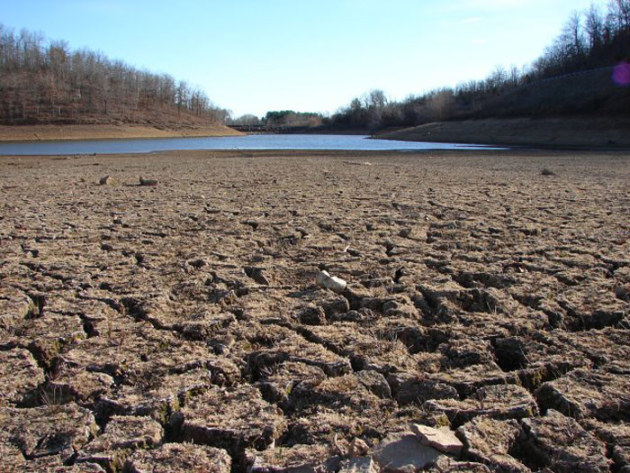
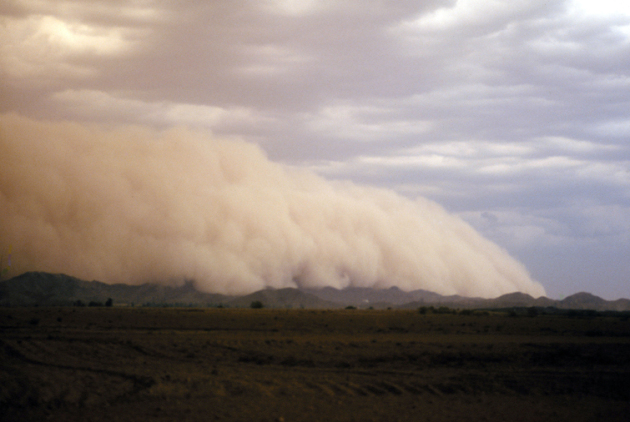
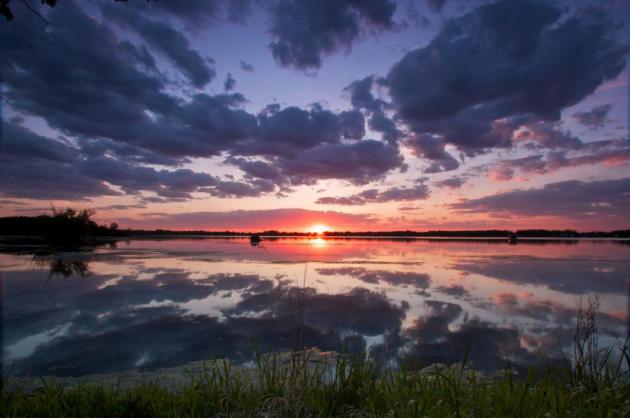
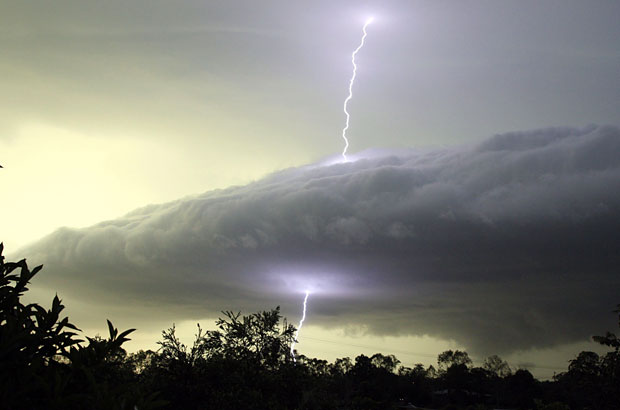

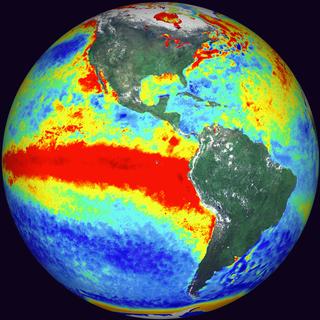

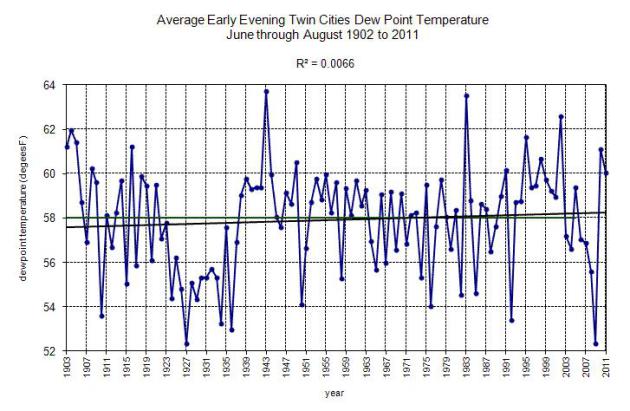

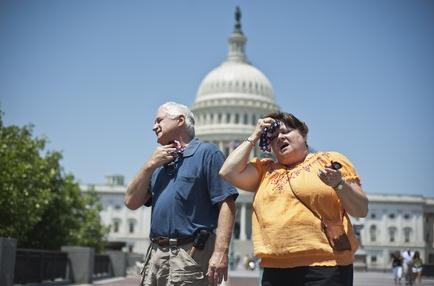
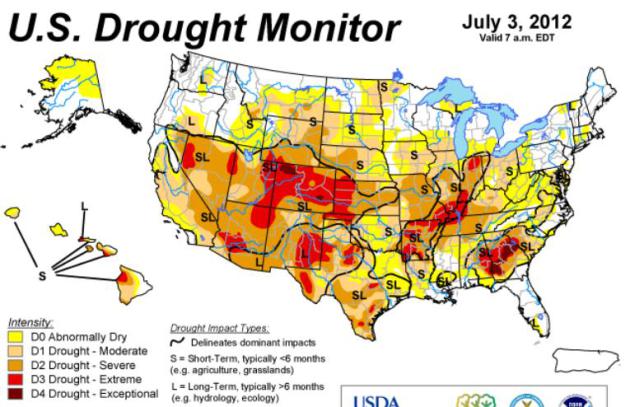
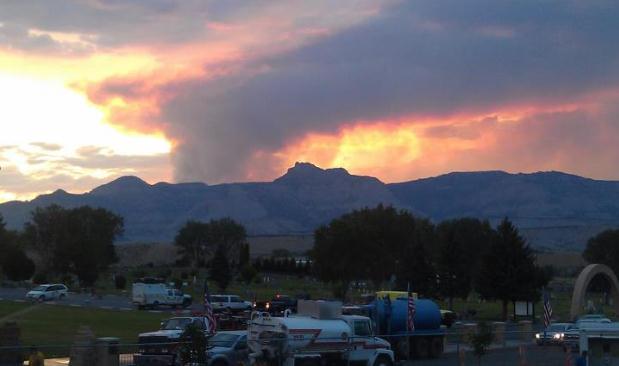
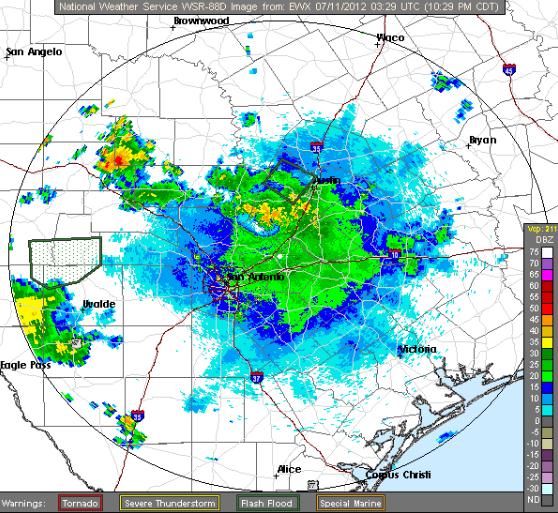
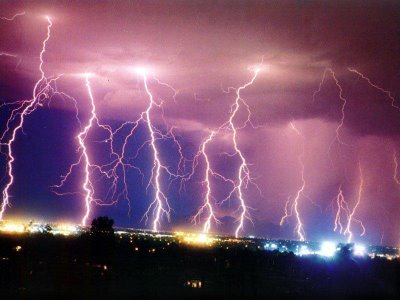
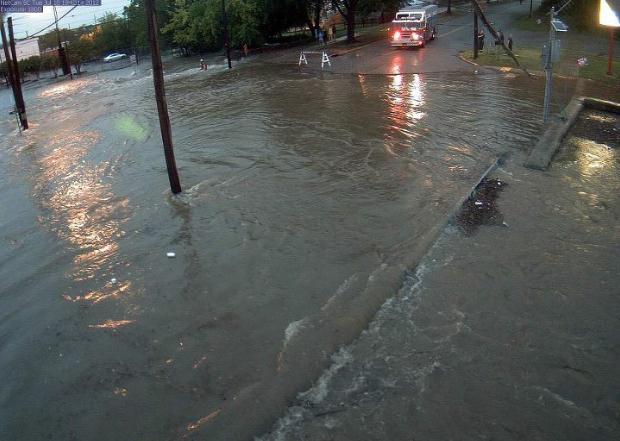
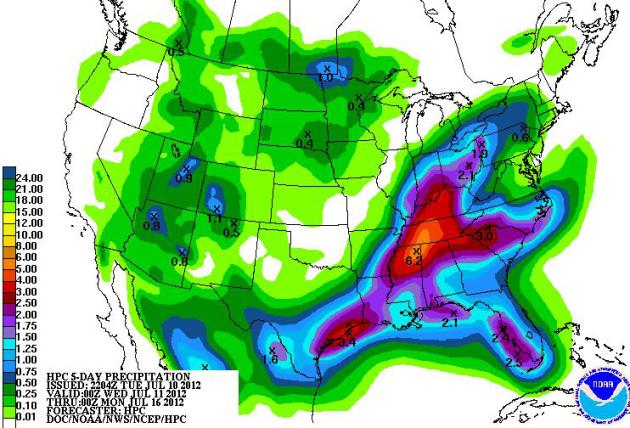
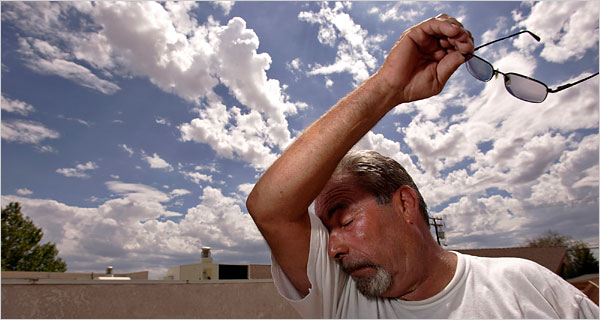
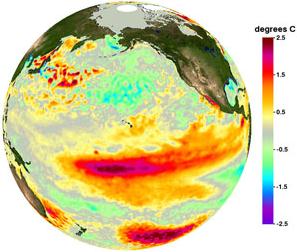
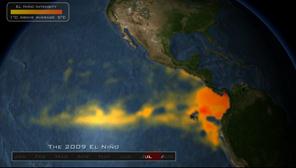
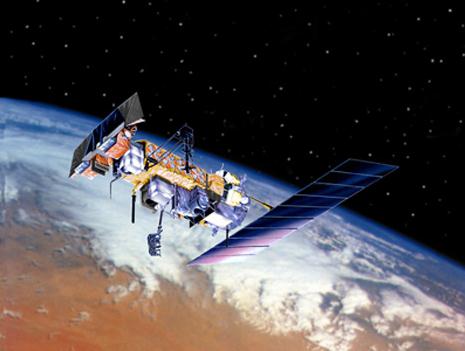


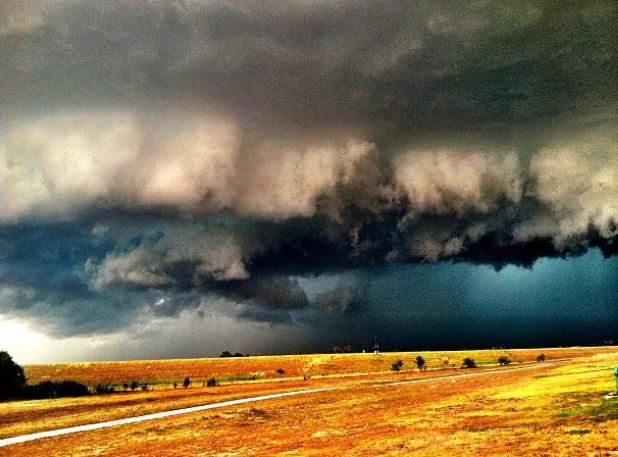

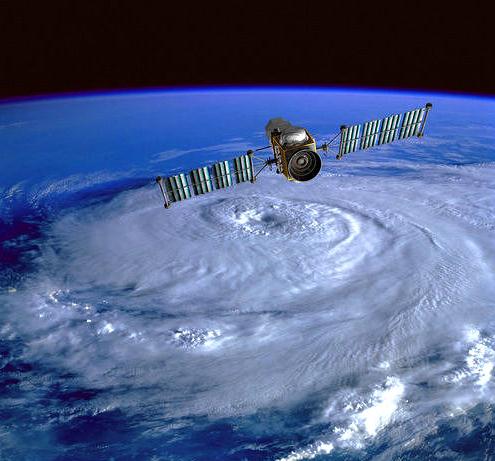

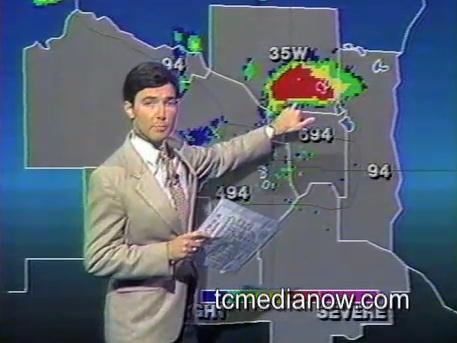
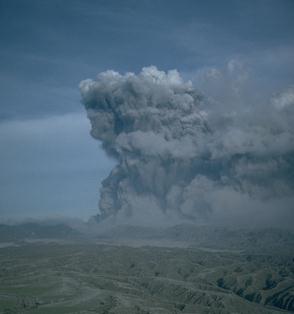

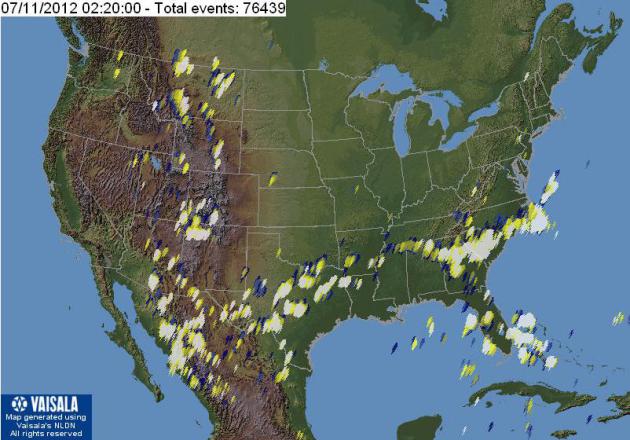
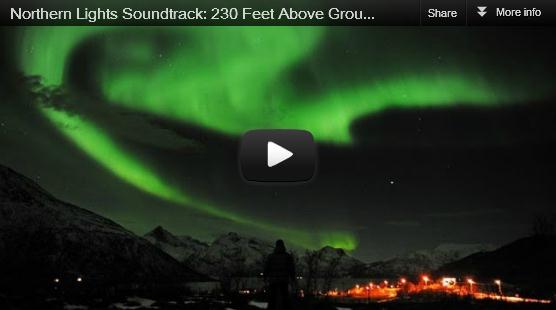
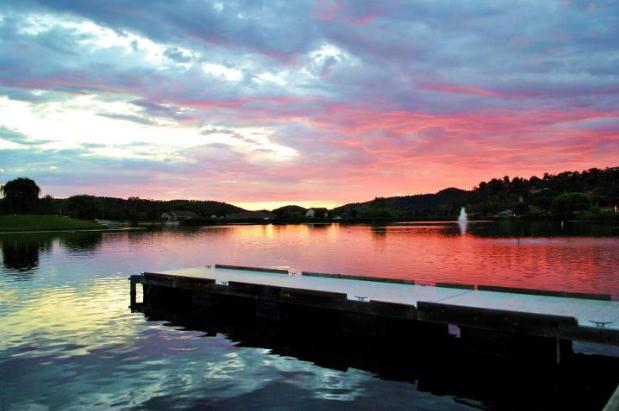


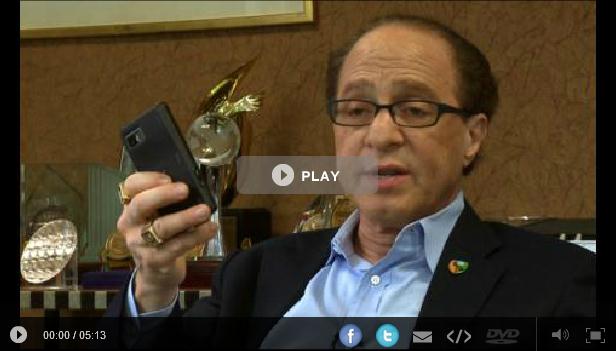
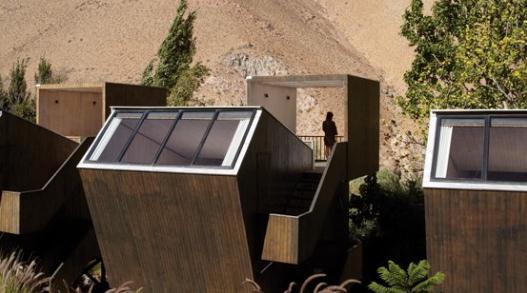
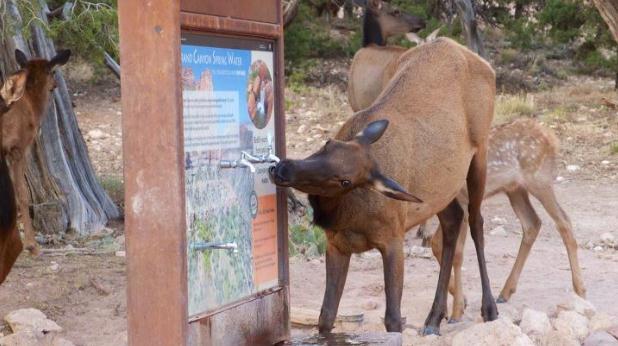
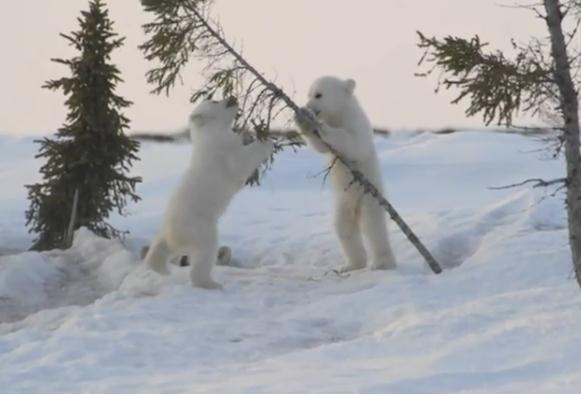
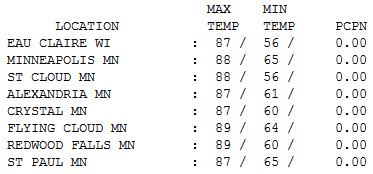
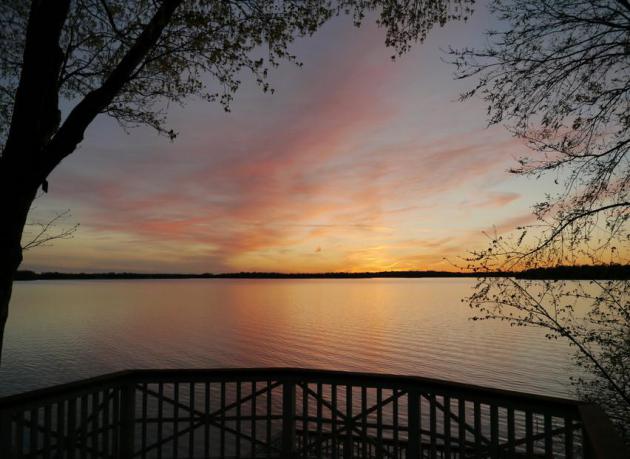
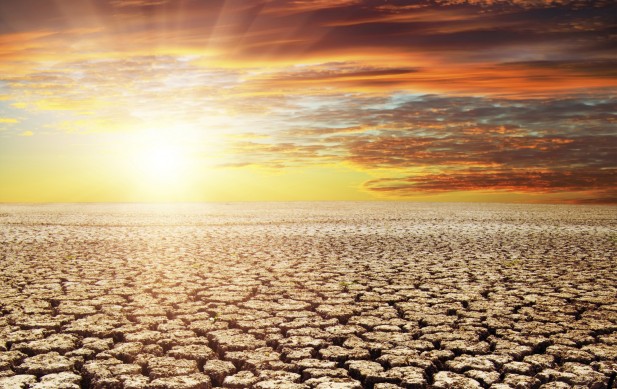

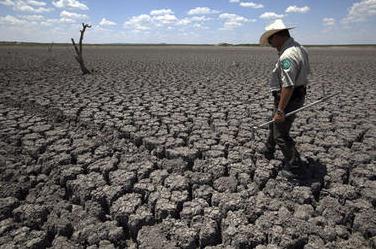
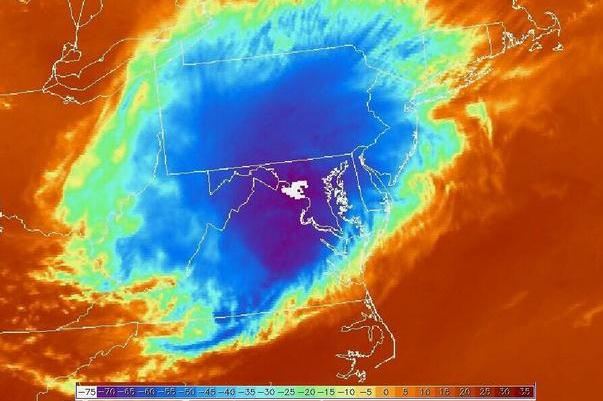
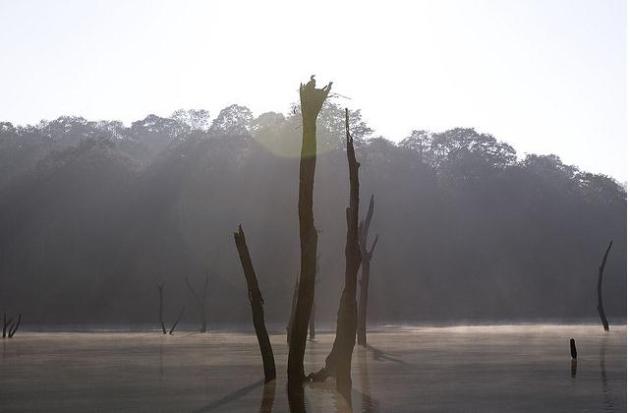
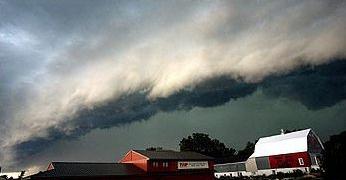


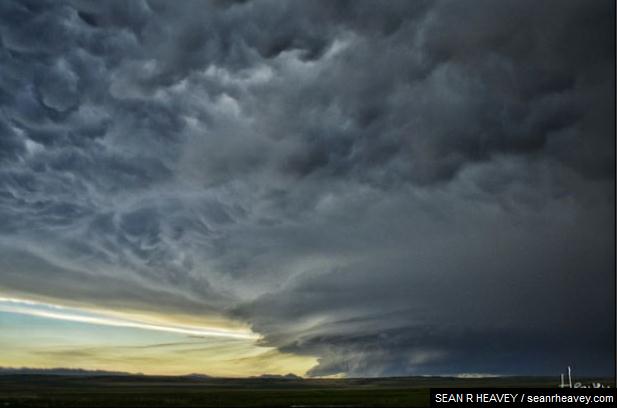


Hi admin,
ReplyDeleteI read your blog, its really awesome,
Most homeowner's who chose to build swimming pools in their properties do so for several reasons such as for fun and for health reasons. Whatever reasons an individual has for having their own pool built at home; it allows everyone in the family to swim a lap or two whenever they want to.
see more details: vapor shops near me
your regards
alfajripon